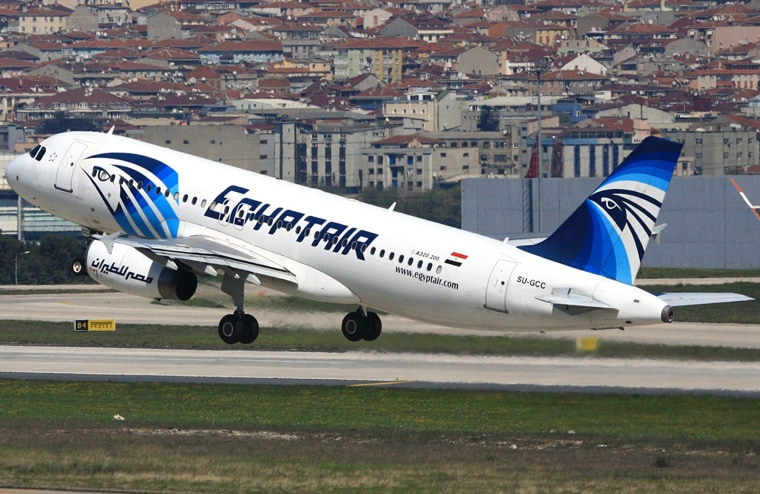CAIRO — A French ship has picked up signals believed to be from the black boxes of crashed EgyptAir Flight MS804, investigators said Wednesday.
The naval survey vessel Laplace has received signals which are assumed to be from one of the plane's data recorders, Egypt's investigating committee said in a statement.
The development was confirmed by the French investigation agency, BEA, which said the signals were detected from the seabed in the wreckage search area.
BEA spokesman Sebastien Barthe told NBC News that the signals were detected by equipment on the vessel belonging to a private contractor, Alseamar, which said it located the signals less than 24 hours after it arrived Tuesday afternoon in the search zone.
Barthe said the signals were definitely from a black box. He stressed that he couldn't definitively confirm that they were from the EgyptAir flight, but he said there was a "strong probability," adding that it could be a week before the recorders were retrieved.
Egypt has been leading a multinational effort to find the cockpit voice recorder and the flight data recorder from the crashed Airbus A320.
The devices are designed to emit acoustic signals for 30 days after a crash, giving search teams less than three weeks to spot them in waters as deep as 9,840 feet.
Related: Why Don't More Airlines Stream Black Box Data?
Investigators hope the black boxes could explain why plane crashed on May 19 with 66 people on board while en route from Paris to Cairo.
Egypt's civil aviation minister, Sherif Fathi, has said he believes terrorism is a more likely explanation than equipment failure or another catastrophic event. However, no hard evidence has emerged on the cause, and no terrorist group has claimed to have downed the jet.
Earlier, leaked flight data indicated that a sensor had detected smoke in a lavatory and a fault in two of the plane's cockpit windows in the final moments of the flight.
Small pieces of wreckage and some human remains have been found, but the bulk of the plane is believed to be deep under the sea.
In its statement Wednesday, the Egyptian investigation committee said the search was intensifying ahead of the arrival of another vessel, the John Lethbridge, from the Mauritius-based company Deep Ocean Search, to help retrieve the black boxes. That ship is expected to arrive within a week.
Air safety in Egypt has been under scrutiny since a Russian airliner crashed in the Sinai Peninsula in October shortly after taking off from an Egyptian resort, killing all 224 people on board.

